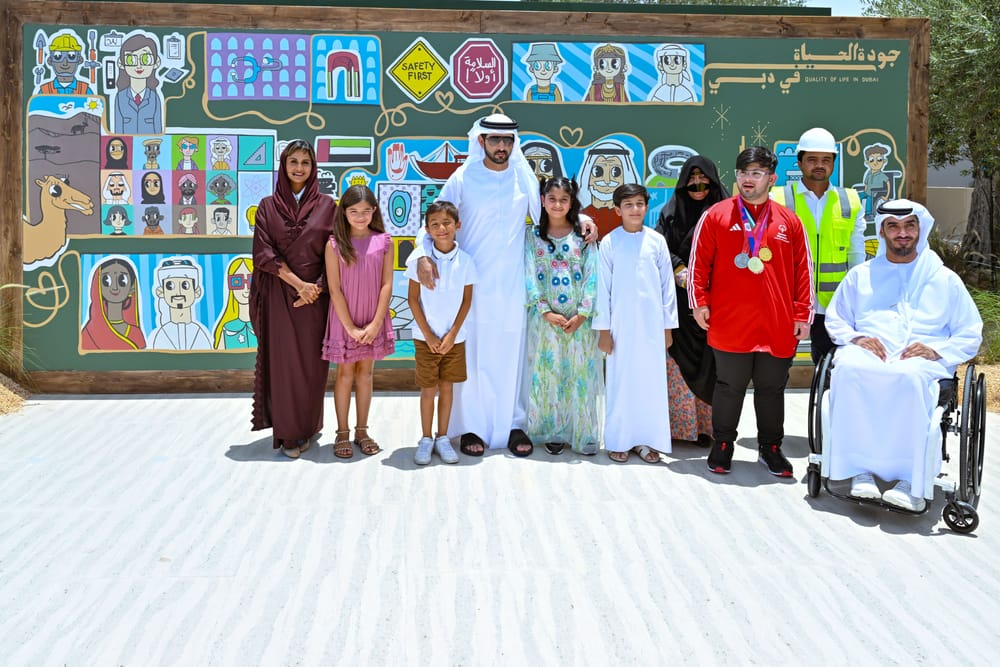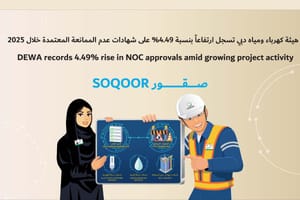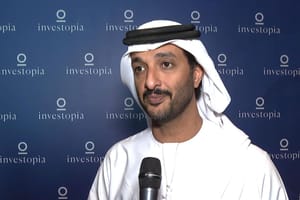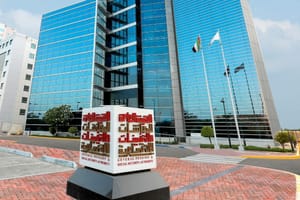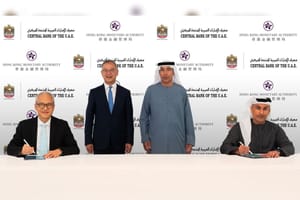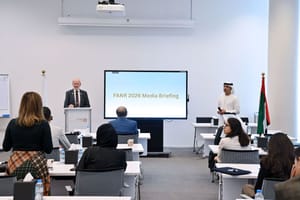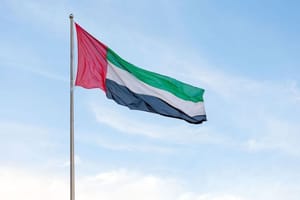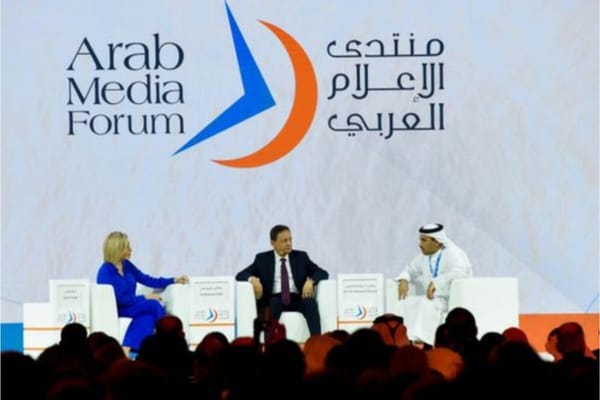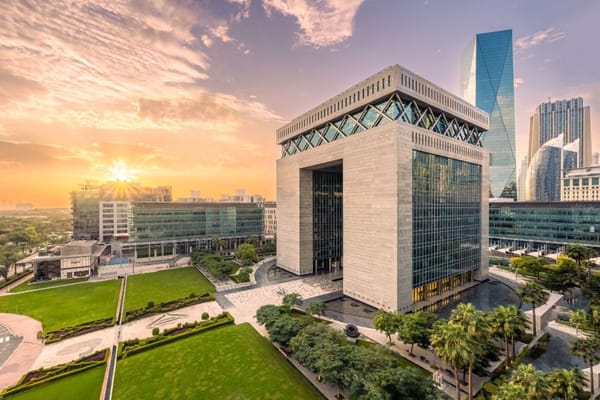Under the directives of His Highness Sheikh Mohammed bin Rashid Al Maktoum, Vice President, Prime Minister and Ruler of Dubai, H.H. Sheikh Hamdan bin Mohammed bin Rashid Al Maktoum, Crown Prince of Dubai and Chairman of The Executive Council of Dubai, today approved the “Dubai Quality of Life Strategy 2033”, a visionary strategy dedicated to ensuring the comprehensive well-being of all segments of the community including nationals, residents and visitors.
Encompassing a holistic and integrated approach to well-being, the strategy aims to establish Dubai as a global leader in quality of life and enhance its status as the world’s preferred destination to live, work and visit.
Sheikh Hamdan bin Mohammed stressed that caring for people remains the cornerstone of Dubai’s sustainable development strategies. The well-being of individuals is the ultimate objective of our development plans and the primary criterion for the success of government programmes.
"We have today approved the Dubai Quality of Life Strategy 2033 as part of our efforts to raise our global standing in the economy as well as in the areas of innovation and well-being. The vibrancy and cultural diversity of our society are key to our development journey.”
“The Dubai Quality of Life Strategy encompasses over 200 projects, initiatives, and plans. The strategy encompasses ten key pillars, all dedicated to fostering the well-being of individuals, society, and the city. Our objective is to establish Dubai as one of the world’s best cities in terms of well-being, offer every resident a healthy, active, and enjoyable lifestyle, build a society that takes pride in its identity and cultural diversity, and offer the highest quality of leisure and entertainment. Dubai’s name will become synonymous with fine living worldwide."
“All projects initiated as part of the strategy will be overseen by a new office dedicated to enhancing quality of life in Dubai, in coordination with over 19 government entities and dozens of private organisations,”
he added.
Innovative initiatives
H.H. Sheikh Hamdan bin Mohammed Al Maktoum praised the Dubai Quality of Life Strategy, aligning with the Dubai 2040 Urban Master Plan, to enhance sustainable urban development. During the launch at Keturah Reserve, Sheikh Hamdan was briefed on innovative initiatives including well-being districts, the 20-minute city concept, new parks, the walking strategy, and sports facilities. The strategy focuses on upgrading infrastructure, promoting soft mobility, and connecting community hubs in districts like Al Mizhar 1, Al Khawaneej 2, and Al Barsha 2. Phase 1 includes constructing over 115 km of pedestrian and cycling tracks, planting 3,000 trees, and creating investment opportunities.
Plans also involve upgrading collector streets, constructing shaded canopies, lanes for bikes, and enhancing safety. The strategy emphasizes distinctive architectural gateways, improving alleyways, and delivering the '20-minute city' concept for easy access to essential services. Sheikh Hamdan reviewed designs for next-generation parks catering to community needs and fostering well-being. He directed all government departments to expedite project implementation, reflecting Dubai's commitment to enhancing quality of life.
Key pillar
The Dubai Quality of Life Strategy comprises over 200 projects and initiatives, spanning three phases from 2024 to 2033. It addresses 10 key pillars: culture, the environment, mobility, society, the economy, education, safety, and health, prioritizing human well-being. Targeting nationals, residents, and visitors, it focuses on demographics like women, seniors, people of determination, children, youth, and white-collar workers. Over 19 entities collaborated to develop an integrated plan and roadmap, identifying current status and targets. The private sector will actively contribute to strategy execution, aligning with Dubai's economic development goals. With 100 projects planned in partnership, the sector aims to accelerate well-being goals, emphasizing high-value initiatives benefiting Dubai's community.
Unique experience
The Dubai Quality of Life Strategy is guided by three primary objectives. Firstly, it aims to enhance individual well-being by prioritizing physical and mental health, education, employment, safety, and security. This focus on personal fulfillment and productivity aligns with Sheikh Mohammed bin Rashid Al Maktoum's vision for Dubai as the world's best city to live in. Secondly, the strategy targets community well-being, emphasizing emotional satisfaction, cultural pride, social cohesion, and entertainment diversity to celebrate Dubai's multiculturalism. Lastly, at the city level, the strategy envisions a unique urban experience with accessible beaches, green spaces, and recreational areas, supporting Sheikh Mohammed's vision of an eco- and pedestrian-friendly Dubai with high urban agriculture yield. These goals collectively aim to provide a distinctive well-being experience for all residents and visitors, fostering happiness, harmony, and prosperity in Dubai.
Shared responsibility
The targets of the Dubai Quality of Life Strategy encompass ten distinct pillars, each dedicated to well-being as a practical means of achieving social well-being and happiness – the ultimate aim of the government’s efforts. This responsibility is shared among all entities in the emirate, based on a holistic approach aimed at enhancing the overall well-being of Dubai's nationals, residents, and visitors. The new strategy aims to improve future deliverables in these sectors in a way that reflects positively on both individuals and society in areas such as physical and mental health, community cohesion, housing, education, economic environment, standards of living, and lifestyle-related aspects.
The Dubai Quality of Life Strategy also covers the natural environment, energy, beaches, outlying areas, transportation, culture and entertainment, landscaping, children and youth.
Natural environment
The Dubai Quality of Life Strategy prioritizes enhancing the natural environment to ensure sustainability for present and future generations. It encompasses projects and initiatives aimed at conserving natural resources while promoting well-being. These include monitoring stations for aquatic environments and air pollutants, the world's largest waste-to-energy conversion project, and the establishment of wildlife reserves and marine protected areas. Additionally, the strategy aims to preserve Dubai's rich biological diversity, which includes a variety of plant and animal species. Dubai's leadership in per capita access to electricity will be further consolidated through initiatives like expanding electricity charging stations and developing solar energy parks, contributing to the overall well-being and satisfaction of residents.
Integrated development
The Dubai Quality of Life Strategy incorporates a comprehensive plan to improve Dubai’s beachfront areas. This plan entails various development projects including upgrading Jebel Ali Beach, Jebel Ali Caravans Camp Beach, as well as Jumeirah, Umm Suqeim, and Al Mamzar Beaches.
Key targets include a 300 percent increase in public services provision by 2025, ensuring 100 percent accessibility for people of determination and senior citizens, expanding cycling tracks on beaches by 300 percent, extending the length of night swimming beaches by 60 percent, and designating new beaches exclusively for women. These initiatives are aligned with the objectives of the Dubai 2040 Urban Master Plan, which aims to increase the length of public beaches by 400 percent.
Exceptional experience
The Dubai Quality of Life Strategy is dedicated to the development of Dubai's outlying areas, aiming to preserve their natural beauty while enhancing the well-being of residents and visitors. This comprehensive approach involves providing essential services and facilities, improving the tourism appeal of areas like Hatta and Lehbab, and supporting local communities through initiatives such as housing projects, upgrades to healthcare and educational facilities, and investment opportunities. By prioritizing the conservation of natural reserves and archaeological sites and promoting local products and farmers, the strategy seeks to create a sustainable and thriving environment for all.
Expanding greenery
The Dubai Quality of Life Strategy sets ambitious targets to expand the emirate’s green cover. The strategy recognises that green spaces, apart from having aesthetic value, have considerable environmental significance, since they play a key role in reducing carbon emissions, improving air quality, and lowering temperatures.
The strategy seeks to increase the planting of trees and flowers in the streets, public roads, squares and parks, in line with Dubai’s sustainability standards, as well as implement sustainable irrigation projects.
Greenery is one of the main elements supporting the strategy, with a portfolio of projects aimed at increasing the total green area in the emirate through the implementation of several major initiatives by 2033. This includes expanding the area of public parks from 23 to 64 square km (a 180 percent increase) and developing over 200 parks and squares in different areas across the emirate.
Quantum leap
The Dubai Quality of Life Strategy aims to revolutionize mobility, reducing private vehicle use, promoting public transportation, and enhancing road safety. By 2033, it targets 25% self-driving trips, 45% sustainable transportation, and doubling cycling lanes. Dubai seeks to become a top 10 city for mobility, leveraging AI for self-driving mobility. The plan includes expanding bus routes by 117%, extending the railway network, and enhancing pedestrian infrastructure. In 2023, public transportation constituted 21% of trips, with high metro punctuality and significant cycling infrastructure, positioning Dubai as a global leader in road quality and public transportation satisfaction.
Openness and diversity
The Dubai Quality of Life Strategy attaches significant importance to culture and entertainment. The strategy features the organisation of events designed to enrich Dubai’s cultural and creative profile.
Another significant focus of the strategy is to develop Dubai into a global hub for culture and creativity, a beacon of intellectual and cultural activity, and a bridge between cultures.
The strategy will create a comprehensive framework for enhancing Dubai’s cultural position, making it a global destination for cultural activities and creative experiences, and a leading venue for international events, in a way that supports the emirate’s creative economy and cultural diversity. It seeks to provide ample opportunities for all Dubai residents to engage in creativity, fostering an environment that stimulates the development of innovative ideas.
The strategy includes more than 1,000 annual sports, community, cultural, arts, and entertainment events. Areas allocated to entertainment, tourism, and hotels are planned to be increased by 134 percent by 2040, ensuring that Dubai is transformed into a meeting point for diverse cultures, and a place where every individual can celebrate their identity and enjoy various activities that meet their aspirations.
Investing in capabilities
The Dubai Quality of Life Strategy places youth and children at the forefront of its priorities, with the aim of empowering them to serve their nation.
The strategy focuses on investing in the development of the skills and capabilities of younger generations and enhancing their contribution to Dubai's sustainable development journey. This reflects His Highness Sheikh Mohammed bin Rashid’s belief that governments cannot advance development without engaging the youth, as they are critical to a nation's resurgence and the creators of its future.
The strategy includes several initiatives for children and youth, including promoting mental health, raising newborn screening standards, active schools, youth counselling and guidance, the Children’s Internet Safety Programme, and the Children’s STEM Museum.
News Source: Emirates News Agency
